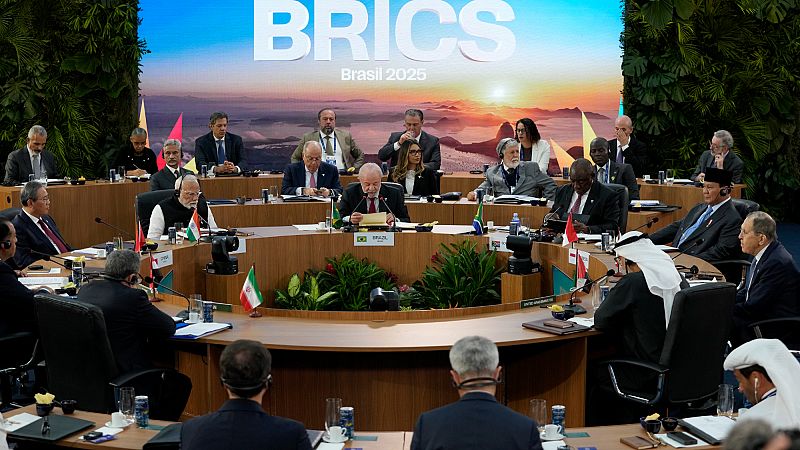Key Topics Discussed at the BRICS Summit
Leaders from the BRICS bloc, which now includes 11 member countries, convened for their final session of the year to address pressing global issues. The discussions covered a range of critical topics, including global health, climate change, and preparations for COP30, which will be hosted by Brazil in November.
Climate Challenges and Global Warming
Brazilian President Luiz Inácio Lula da Silva opened the summit with a strong message about the current state of global progress. He warned that denial and unilateralism are hindering efforts to achieve meaningful results on international issues. “Today, denial and unilateralism are eroding past achievements and sabotaging our future,” he stated. Lula emphasized that global warming is occurring more rapidly than previously predicted, and tropical forests are approaching critical tipping points.
He called for a collective effort to address these challenges, highlighting the need for global cooperation and shared responsibility. Lula also pointed out that the situation in the Global South is often overlooked, despite the severe consequences it has on local populations.
Role of Emerging Economies
Lula stressed the importance of emerging economies in shaping a more inclusive and sustainable future. He argued that these nations should not be seen merely as suppliers of raw materials but as active participants in global value chains. “We must access and develop technologies that enable us to participate in all stages of value chains,” he said. This statement reflects a broader call for economic empowerment and technological advancement among developing nations.
Health Inequalities
Health inequalities were another significant topic during the summit. Leaders discussed how factors such as income, education, gender, race, and place of birth continue to influence who gets sick and who dies around the world. Lula pointed out that many diseases prevalent in the Global South, such as Chagas disease and cholera, could have been eradicated if they affected wealthier nations. He highlighted the urgent need for greater investment in public health systems and equitable access to medical resources.
Expansion of the BRICS Group
The summit marked the first meeting of the BRICS group since its expansion to include 11 members. Originally founded by Brazil, Russia, India, China, and South Africa, the group has grown significantly in recent years. Last year, new members such as Indonesia, Iran, Egypt, Ethiopia, the United Arab Emirates, and Saudi Arabia joined the bloc. This expansion has broadened the group’s influence and introduced new perspectives into its decision-making processes.
In addition to the new members, the BRICS group has 10 strategic partner countries. These partners, including Belarus, Cuba, and Vietnam, were added through a category created at last year’s summit. The inclusion of these countries reflects the group’s commitment to fostering closer ties and collaboration with a wider range of nations.
Conclusion
The BRICS summit provided an important platform for leaders to address global challenges and discuss strategies for a more equitable and sustainable future. With its expanded membership and focus on key issues such as climate change and health inequality, the group continues to play a vital role in shaping international policies and promoting global cooperation. As the world faces increasingly complex challenges, the BRICS bloc remains a significant force in advocating for inclusive development and shared prosperity.







